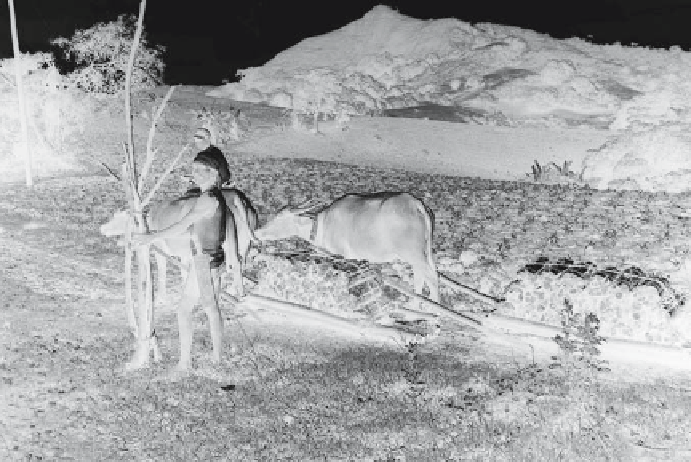Agriculture Reference
In-Depth Information
common lands managed by farmers (Iwamoto 2002). In Europe, the increasing
importance of timber in the 18th century led to the founding of forest science as a
specialist discipline in Germany from where it spread to other European countries
and their colonies in the 19th century (Shepherd et al. 1998; see also Appendix).
With the technological development in the 20th century, large-scale logging enter-
prises and monoculture, even-aged forest plantations emerged in rural areas world-
wide (Shepherd et al. 1998). Moreover, after the disintegration of most colonial
empires around the first half of the 20th century, the Food and Agriculture Organization
(FAO) helped forestry departments of former colonies to transform earlier weakly
centrally-controlled forests into important timber-producing areas and so-called
“political forests”, i.e., forests put under state forestry services and affected by both
ecological and political processes (Van der Geest and Peluso 2006). Small-scale tree
growing activities were still performed by rural communities but received relatively
little attention from governments and (inter)national organizations throughout the 19th
and most of the 20th centuries. During the second half of the 20th century, forestry
laws and binding regulations in support of sustainable land use were being developed
and enacted in response to growing environmental awareness. The latter was instigated
by the rapid decrease in natural forest cover and associated biodiversity resulting from
the excessive rise in timber exploitation rates. Moreover, there was much concern
about the ever-increasing gap between demands for fuelwood and availability of sup-
plies in developing countries where local resource-poor farmers used more and more
crop residues and animal manure as a source of fuel rather than a source of mulch and
fertilizer, affecting soil productivity (Arnold and Dewees 1997; Photo 1.1).
Photo 1.1
Smallholders collecting fuelwood in the uplands in Isabela Province, the Philippines
(©DJ Snelder)

Search WWH ::

Custom Search